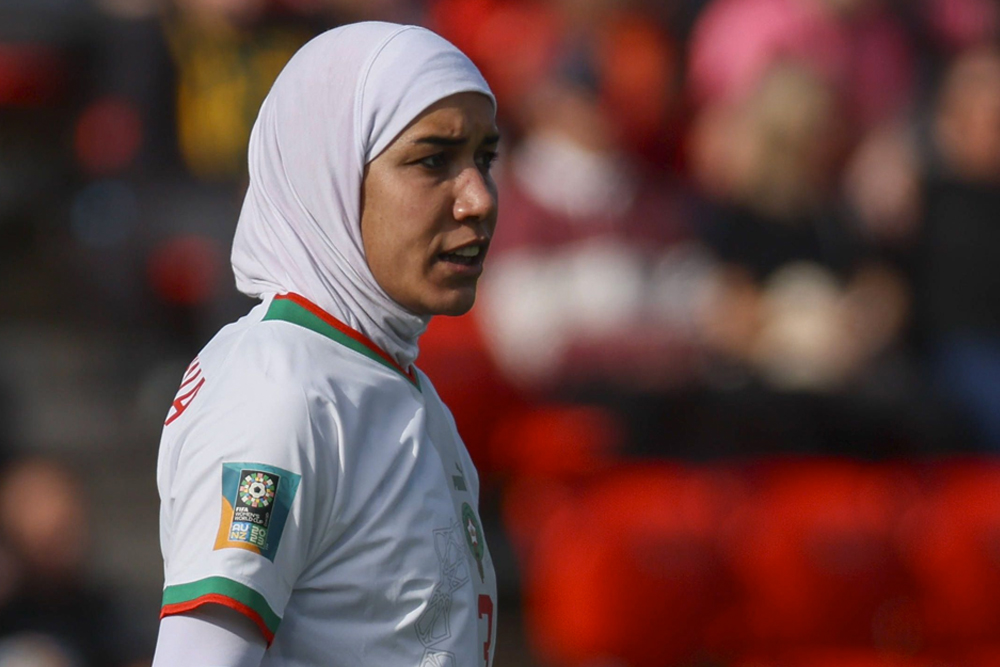
Morocco's Nouhaila Benzina etched her name into the annals of Women's World Cup history last Sunday as she became the first senior-level player to wear a hijab during a game at the prestigious tournament. A devout follower of the Islamic faith, the 25-year-old defender started at the center of the backline for the Atlas Lionesses in their match against South Korea at Adelaide's Hindmarsh Stadium. She donned traditional headwear along with her team's predominantly white uniforms, making a powerful statement of representation on the international stage.
Although she didn't feature in Morocco's inaugural World Cup match, a tough 6-0 defeat against Germany, head coach Reynald Pedros saw her potential and introduced her into the lineup for the clash with South Korea, aiming for the team's first goal, point, and win in the World Cup. The squad's determination paid off, and they emerged triumphant with a 1-0 victory. Ibtissam Jraidi secured the historic win by heading home the go-ahead goal just six minutes into the match.
Morocco's participation in the Women's World Cup was a historic occasion for the Arab country, and the team celebrated being the first Arab nation to take part in the tournament. However, the use of hijabs in soccer has sparked debates worldwide. While some countries, like France, still maintain a ban on the hijab in the sport, others, like Canada, have seen legal action taken to allow hijab-wearing players to participate in soccer.

Nouhaila Benzina's story gained global attention, even though Nouhaila Benzina sat on the bench for the first game. The talented defender, who plays for the Association's Sports of Forces Armed Royal team in her home country, let her actions speak on the field, inspiring countless individuals around the world.
With the lowest ranking in the tournament at No. 72, Morocco was eager to keep its hopes of progressing to the second round alive. On the other hand, South Korea also made its own history in the tournament, with 16-year-old Casey Phair from New Jersey becoming the youngest World Cup participant ever.

Nouhaila Benzina's presence and courage symbolized the power of representation and diversity in sports, sending a message of inclusivity and breaking barriers. As the Women's World Cup continued, her impact on and off the field remained a testament to the universal appeal and unifying nature of soccer.

















